Meet Our Team
Below are the team members for the STAR Library Network (STAR Net). Feel free to reach out if you have any questions.
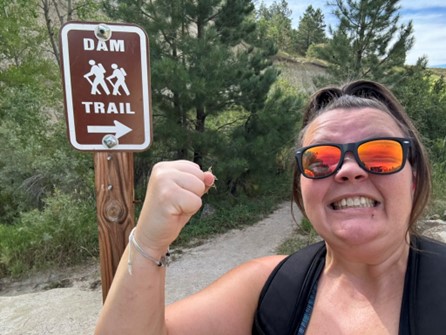
Anne Holland: Director of Education and Learning Research
Anne Holland is the Director of Education and Learning Research, and a Senior Education Associate with the Space Science Institute, where she has led exhibit-focused efforts for NASA, NSF, NIH and IMLS-funded projects since 2012. Holland is also the manager of the STAR Library Education Network, a group of over 10,000 library staff committed to increasing STEAM programming in their libraries. Holland is the PI of the NASA funded NASA@ My Library project, NSF funded STEAM Equity project, and SEAL (Solar Eclipse Activities for Libraries) funded by the Gordon and Betty Moore Foundation.
Anne received her B.S. in astrophysics and B.A. in English Writing from the University of Hawaii in 2009 and received a master’s degree in Space Studies in 2014. Before joining the Space Science Institute, she gained informal education experience while working for the Mauna Kea Visitor Information Station, Hawaii Forest and Trail, and Denver Museum of Nature and Science.
Her PhD is in Research Methods and Statistics from the University of Denver. Her dissertation research investigated on the ground experiences of current children’s librarians in relation to the formal training they received during their MLIS programs.
Book Recommendation: Murderbot Diaries “Yes, talk to Murderbot about its feelings. The idea was so painful I dropped to 97 percent efficiency. I’d rather climb back into Hostile One’s mouth.” – Martha Wells, All Systems Red

James Harold: Deputy Director of Education and Learning Research
James Harold has a research background in space physics (Ph.D. in physics, Univ. of Maryland), and is currently Director of Information Systems and Technology for the Space Science Institute. Jaime has a long interest in the role of computers, simulations, and games in education. He has been involved in a wide range of space science education programs, including the NASA Office of Space Science (now Science Mission Directorate) Education Support Network, which sought to enhance NASA’s education involvement through more effective scientist involvement and more cohesive education programs. He was the development lead for the software components of the Alien Earths and Giant Worlds traveling exhibits and accompanying web sites, as well as the Space Weather Center website. He was Co-I on the NASA/HST funded MyStar project (a small stellar evolution game), and the NSF funded Hydrobot project (a 3D Hydrobot simulator game). Jaime is currently Co-I and software development lead for the NSF funded Great Balls of Fire exhibit, PI of the NSF and NASA funded Finding NEO project (developing, among other things, a physics based asteroid deflection game), and PI of Making Space Social, which is creating a social game for Facebook dealing with stellar and planetary evolution.
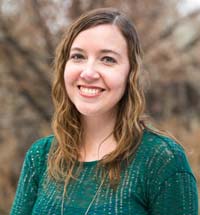
Claire Ratcliffe Adams: Education Associate
Claire Ratcliffe Adams is an Education Coordinator II at the Space Science Institute where she curates STEAM resources and professional development opportunities for library staff. She has a B.A. in Environmental Studies from the University of Utah and an M.S. in Natural Science Education from the University of Wyoming. Claire has over ten years’ experience working in informal education settings, including teaching science camps across the country, working as a Marine Naturalist in Hawaii, and directing a teen program for the Boys & Girls Club. Claire also spent several years teaching k-8 STEM in a public school.
In her spare time, Claire enjoys gardening, reading YA fiction, and hiking.
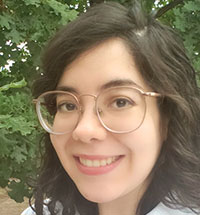
Amy Briones: Graphic Designer/Illustrator
Amy is a Graphic Designer and Illustrator at the Space Science Institute, where she creates visual identities for a range of federally and privately funded projects promoting STEAM learning in libraries nationwide. With a B.A. in Graphic Design and a minor in Museum Studies from the University of Texas at El Paso, Amy combines her design experience with a strong understanding of educational outreach. In addition to developing visual identities, she plays a crucial role in her team by creating various graphics, including infographics, workshop materials, social media content, flyer templates, and engaging illustrations for online activities. Projects she has contributed to include NASA@ My Library, From Our Town to the Moon, Mars, and Beyond, SEAL: Solar Eclipse Activities for Libraries, STEAM Equity, and Discover Exoplanets.
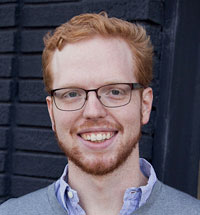
Brooks Mitchell: Education Associate
Brooks W. Mitchell is an Education Associate with the Space Science Institute, where he has helped lead Professional Development efforts for NASA, NSF, and IMLS-funded projects since 2017. Brooks empowers library staff and other informal educators to better engage their patrons in STEM content through workshops, presentations, papers, and more. He also combines his professional training in geoscience and communication and engagement skills to create patron-facing resources, such as exhibit pieces, interactive activities, online resources, and videos. He is currently the institutional PI for the NASA-funded Eclipse Ambassadors project.
Brooks received his B.A. in geology from the University of Alabama in 2012 and began working with informal learning institutions shortly thereafter. Before joining the Space Science Institute in 2017, he gained informal education experience while working for the Mildred Westervelt Warner Transportation Museum, Georgia Aquarium, Fernbank Museum of Natural History, About.com, and Durango Nature Studies. He received his Post Baccalaureate Certificate in Geographic Information Systems (GIS) from Pennsylvania State University in 2021 and his Masters in GIS in 2022. His Masters capstone research focuses on the effect of public library programming on academic success rates in school districts in the Mountain West region.
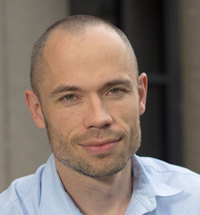
Evaldas Vidugiris: Senior Developer
Evaldas is a graduate in studio arts from the University of Colorado in Boulder with a certificate in Technology, Arts and Media (2003). He joined the Space Science Institute in 2002 and has been the primary programmer for a wide variety of interactive activities and games for NASA and NSF funded projects, including MarsQuest Online, Alien Earths, Giant Worlds, the Space Weather Center, Hydrobot, Great Balls of Fire, and Finding NEO. In addition to development tools such as Flash and Director, his expertise in PHP has allowed us to develop online activities which track user interactions for later evaluation. He also has experience developing multi-touch applications for both Flash and the Microsoft Surface.
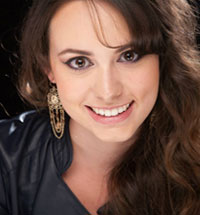
Stephanie Vierow-Fields: Education Associate
Stephanie is an Education Associate at the Space Science Institute, where she works with library professionals and project partners on federally and privately funded projects that bring STEAM learning to library patrons, provide professional development to library staff, and curate communities of practice for nationwide public library staff. In addition to her undergraduate academic background in anthropology and theatre arts from the University of Northern Colorado, Stephanie also has a MA in Archaeology for Screen Media from the University of Bristol (UK). She uses her academic and professional experience to communicate technical ideas and concepts in easy-to-engage formats that can be enjoyed by all audiences.
Emeritus
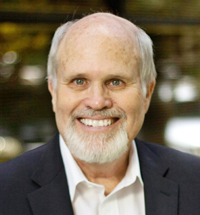
Paul B. Dusenbery: Former NCIL Director
I received my B.A. in Physics from Whitman College in 1972 and my Ph.D. in Physics in 1978 from the University of New Hampshire specializing in space plasma physics. I was a Research Associate at the University of Colorado, Boulder from 1982-1990. In September of 1989, I served as the Program Director of the Magnetospheric Physics Program at the National Science Foundation.
I have given back to the science research and education communities by serving on science research and education committees, agency review panels, and participating as an advisor on many different projects. I co-developed a successful workshop series to help scientists and engineers learn how to implement an effective formal and informal STEM education program (1995-2004). I have also designed and participated in numerous professional development workshops for classroom and informal STEM educators. I led the development of major national traveling exhibitions that reached over 2 million visitors (funded primarily by NSF and NASA): Electric Space, Space Weather Center, MarsQuest, Destination Mars, Alien Earths, Giant Worlds: A Journey to the Outer Solar System, and most recently Great Balls of Fire: Comets, Asteroids, and Meteors. These exhibitions were produced for the science center/science museum community and included workshops for museum educators. The Association of Science-Technology Centers was a strategic partner for many of them.
Currently, I direct the STAR Library Network (STAR Net), a national library education program (in partnership with the American Library Association and many other organizations). Five STAR Net exhibitions have been developed (funded primarily by NSF, NASA, and NIH): Discover Earth, Discover Space, Discover Tech, Discover Health, and Discover NASA (and three smaller Explore exhibitions). I am also PI and Project Director for the following STAR Net projects including NSF-funded STAR Net: Phase 1 and Phase 2, STEM Learning in Libraries Conference (Denver, Colorado, August 20-22, 2015), and Project BUILD. NASA-funded projects include From Our Town To Outer Space and NASA@ My Library. The later project was responsible for providing over 2.1 solar viewing glasses to 7,000 library organizations during the 2017 solar eclipse. A recent focus of STAR Net has been to design education programs that encompass diversity, equity, inclusion, and accessibility principles in partnership with the American Library Association.
